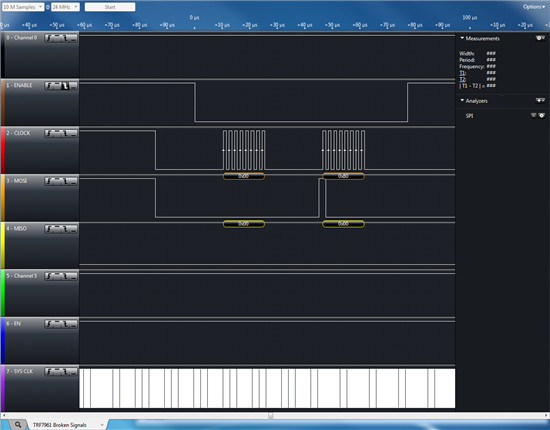Hi,
So I'm trying to get the TRF7961 to work, but it doesn't seem to be writing registers properly - when I do a read after a write, the changes don't show up (returns the default value, not what I have written in).
I have looked at it with a logic analyzer, and the signals seem fine:
Register write (attempt to write register 0x00 (control) with 0x80 (sleep)):

... and subsequent register read (read register 0x00 - returns default 0x01):

(and several more with other registers in the logic analyzer export)
The hardware setup is a custom board based on the TRF7690 application schematic in SPI mode connected to a external microcontroller. The antenna (magnet wire coil) is probably not really tuned, although that shouldn't affect register read/writes, right? The SYS_CLK pin is also running at ~3 MHz when EN is high ~60 kHz when EN is low.
The chip was soldered by hand using a hot-air machine (set to 260 C), then a soldering iron (set at 300 C) to make any missing connections. Could heat damage be the cause? Or am I doing something seriously wrong in software? Any ideas?
Thanks!



